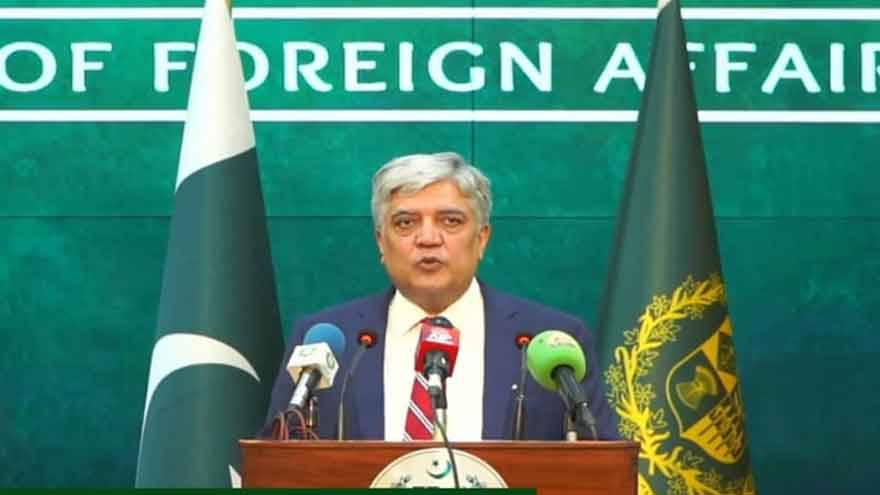In a statement during the weekly Foreign Office briefing, spokesperson Shafqat Ali Khan confirmed that Pakistan is ready to engage in meaningful dialogue with India on all outstanding bilateral issues, including Kashmir, water-sharing, trade, and terrorism. However, he noted that the initiative now rests with New Delhi, emphasizing that progress depends on India’s response.
Khan’s announcement aligns with repeated public overtures from Prime Minister Shehbaz Sharif, who has reiterated Pakistan’s readiness for talks during interactions with foreign leaders and envoys most recently to the UK High Commissioner. While Pakistan frames this as a positive diplomatic step, it insists dialogue must be reciprocal and comprehensive, not piecemeal.
Diplomatic Momentum Amid Fragile Ceasefire
Pakistan’s statement follows a tenuous ceasefire that halted a four‑day military confrontation in early May. Although border exchanges have since quieted, the region remains tense. The ceasefire and willingness to talk come amid increased international pressure, including U.S. and Gulf mediation efforts, to de-escalate the situation and foster bilateral cooperation in South Asia.
Conditions and Red Lines for Talks
Pakistan’s core demand is a broad, issue-based dialogue covering security, economic, and regional matters. Islamabad stresses that:
- Talks should not be limited to terrorism
- Water-sharing agreements (such as the Indus Waters Treaty) must be discussed
- Kashmir remains a central unresolved dispute
- Dialogue depends on India’s willingness to reciprocate in spirit and action
Why It Matters
- A formal dialogue could stabilize South Asia, easing military tensions and reducing risk of accidental escalation
- Opens opportunities for economic revival: trade normalization, restoration of transport links, and investment cooperation
- Sets a framework for regional diplomacy, potentially involving third-party support from nations like the U.S., Saudi Arabia, and China
What’s Next
- India’s Response: Only New Delhi can accept or propose the timing and format of talks
- Multilateral Support: Global players may encourage confidence-building measures (CBMs) such as trade resumption or water talks
- Track-One Diplomacy: If accepted, both countries could begin with expert-level discussions covering technical issues before political-level meetings
Conclusion: Diplomatic Opening with Conditions
Pakistan’s Foreign Office statement marks a deliberate diplomatic overture framing readiness for dialogue with India. However, success hinges on India taking the next step. Should Delhi respond favorably, a renewed dialogue may open the way for long-stalled issues to be addressed in a shifting South Asian landscape.



Comments (0)
No comments yet. Be the first to comment!
Leave a Comment